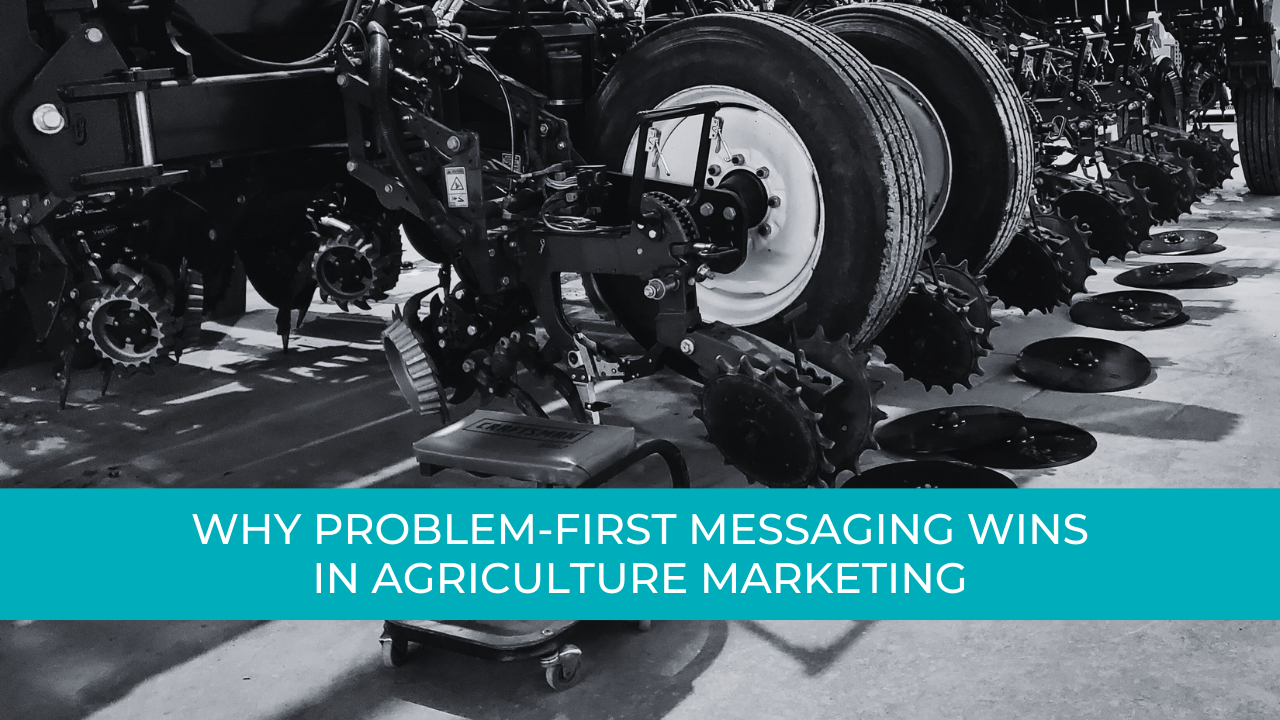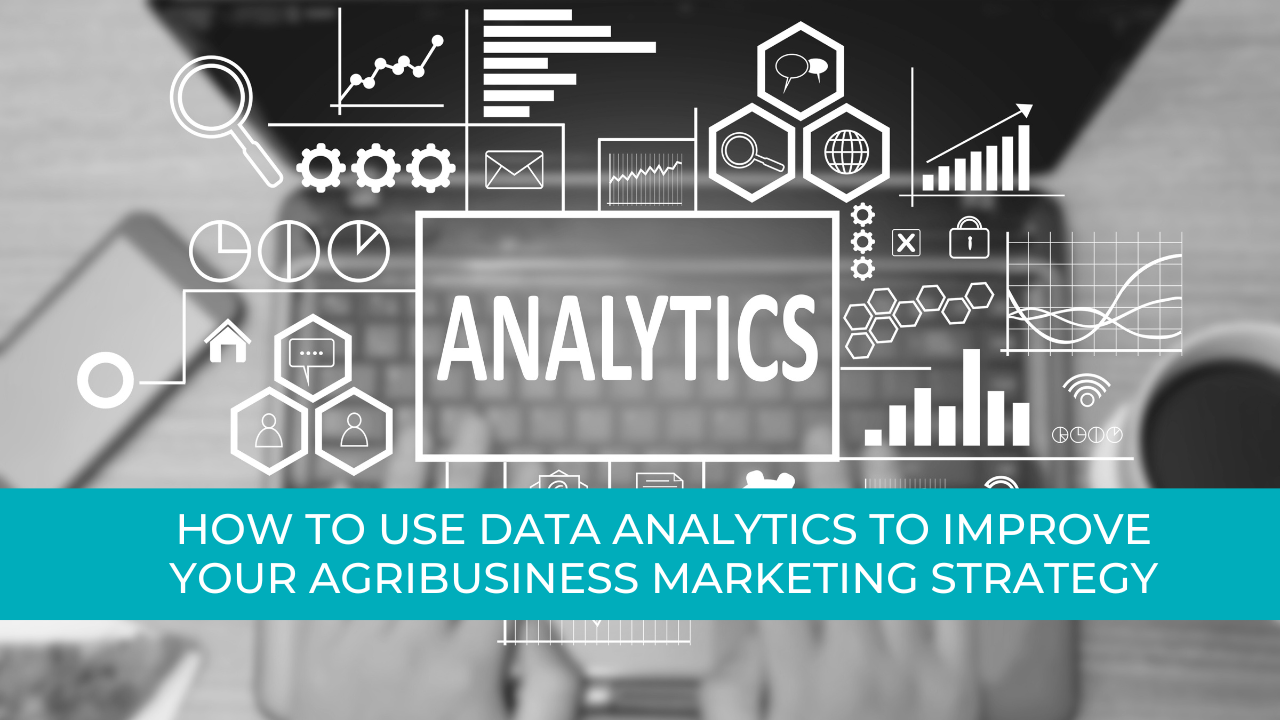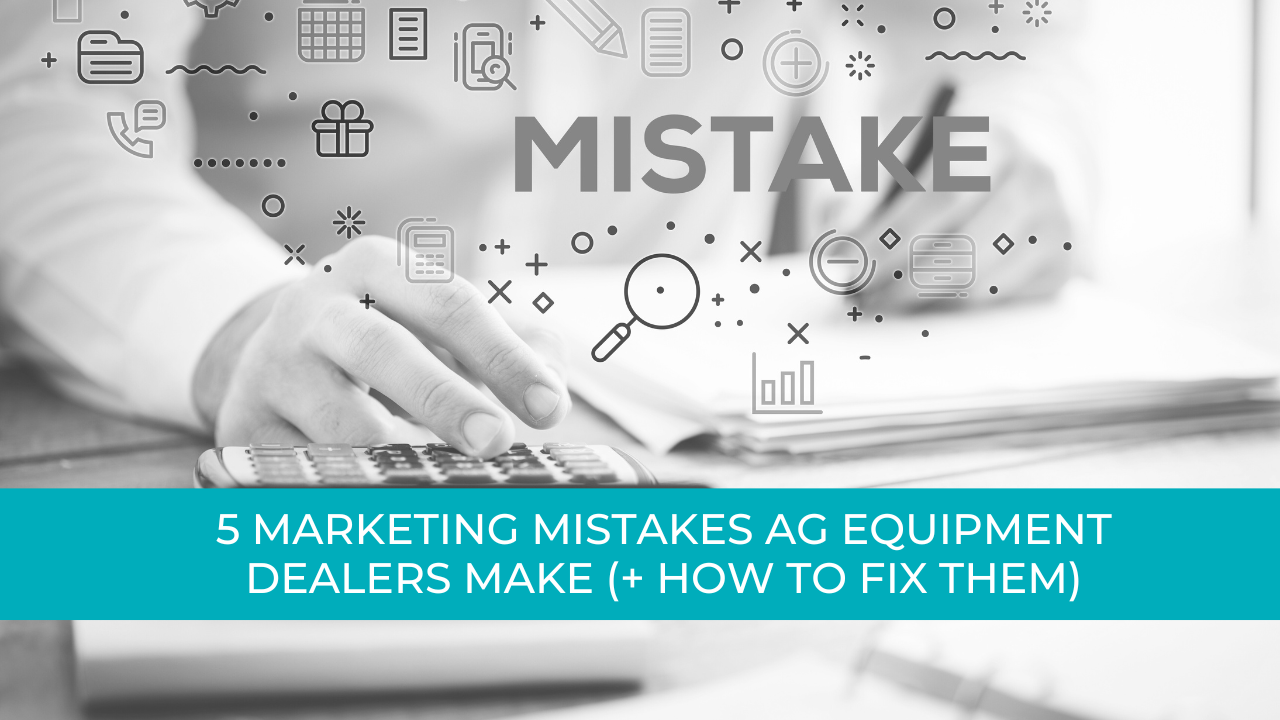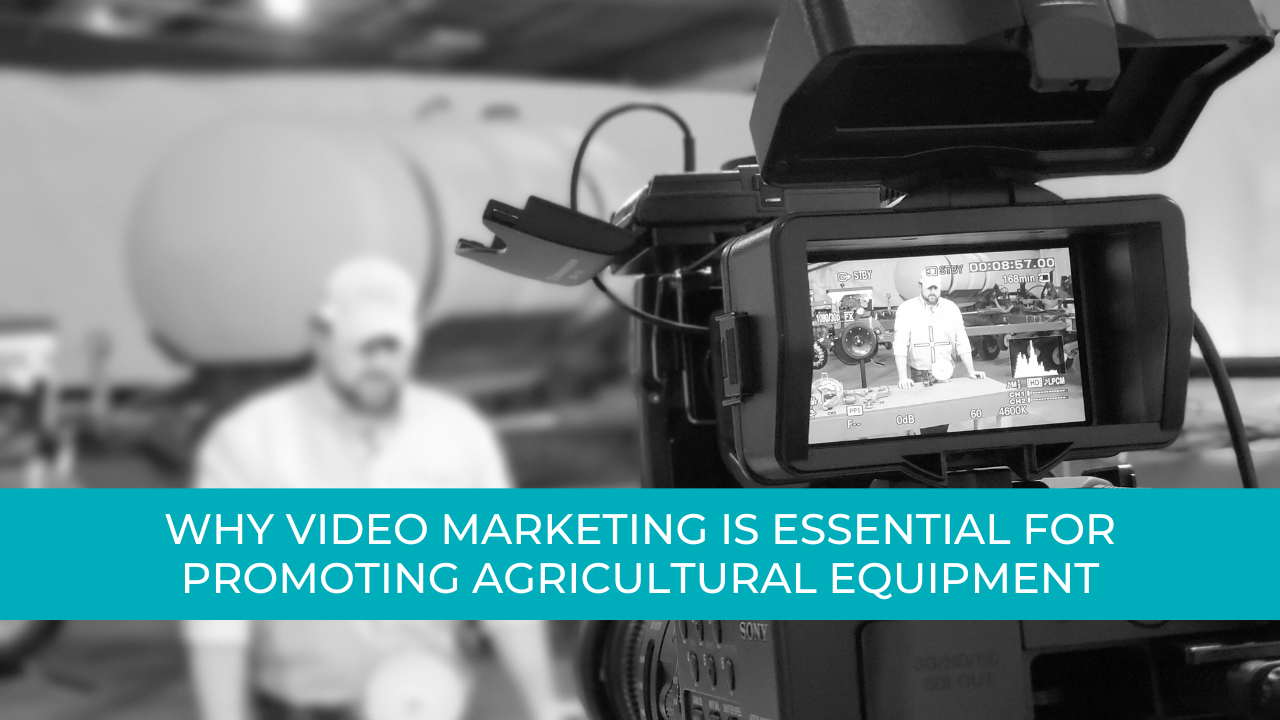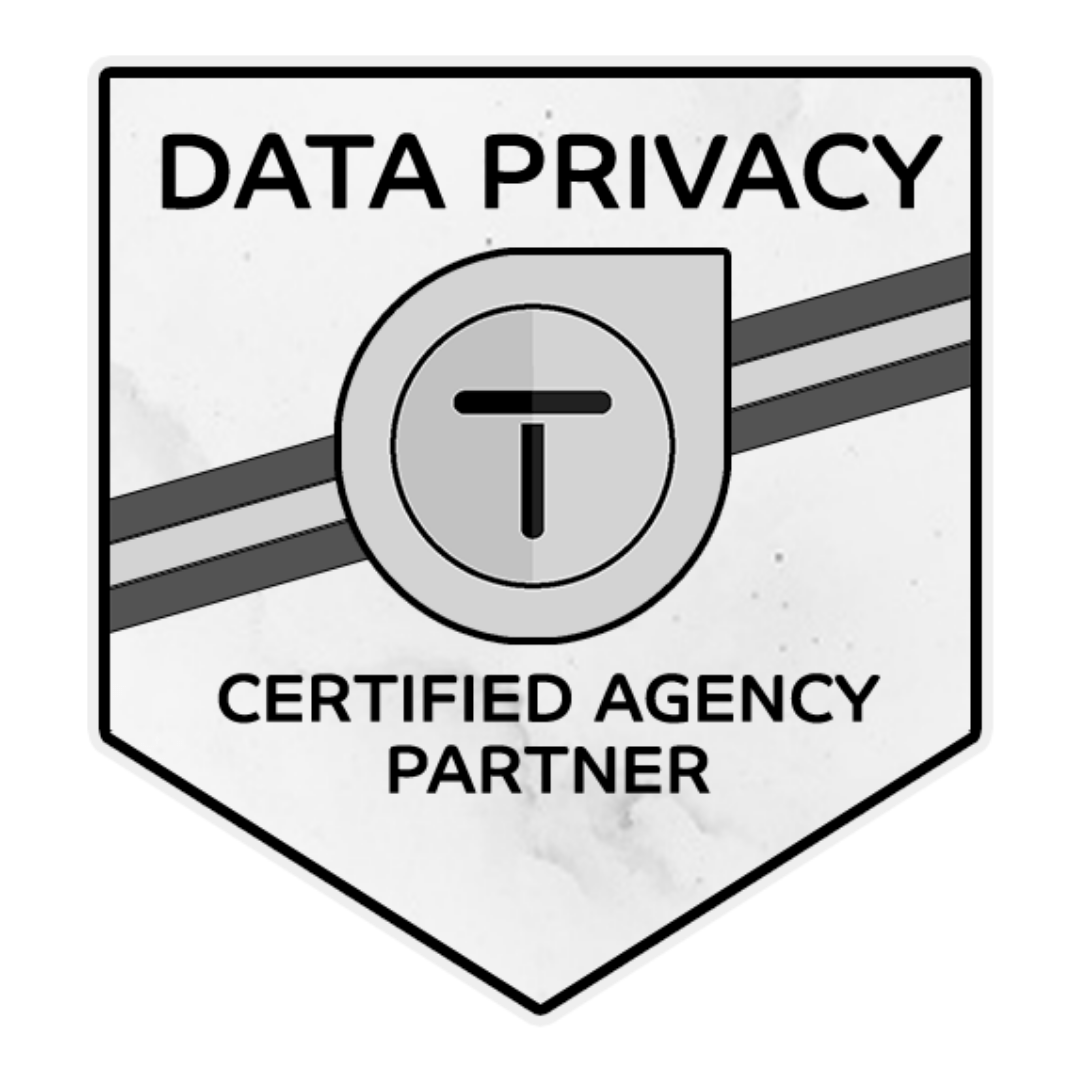Measuring ROI of AI-Driven Marketing Tools in Agribusiness
By Laura Sutherly, Founder & Digital Marketing Strategist at Agtivation / April 16, 2025
Measuring ROI of AI-Driven Marketing Tools in Agribusiness
Measuring the ROI of AI-driven marketing tools in agribusiness is essential for your success. It helps you understand where your resources are going and if they're yielding the desired results. By focusing on key metrics and setting clear goals, you can fine-tune your strategies. But how do you accurately assess the impact of these tools compared to traditional methods? The answer might surprise you.

Key Takeaways
- Track cost savings from AI automation to evaluate labor efficiency and budget impact in agribusiness marketing.
- Measure engagement metrics like CTR and email open rates to assess AI-driven campaigns' effectiveness.
- Analyze inventory management improvements to minimize waste and enhance ROI through AI tools.
- Use customer feedback to refine strategies and ensure alignment with audience preferences and needs.
- Regularly review performance data against specific objectives to adapt marketing strategies and maximize ROI.
Understanding AI-Driven Marketing Tools
As you explore new ways to connect with customers, understanding AI-driven marketing tools can really boost your efforts. These tools offer numerous AI benefits that can enhance your marketing strategies. By analyzing customer data, AI helps you tailor your messages, ensuring they resonate with your audience. You can predict customer behavior, allowing you to target promotions more effectively.
Moreover, automating routine tasks saves you time, letting you focus on building relationships. Utilizing chatbots can provide real-time assistance, improving customer satisfaction. With AI-driven insights, you can refine your campaigns, making them more efficient and impactful. Embracing these tools not only streamlines your efforts but also positions your agribusiness at the forefront of innovation in marketing.
Importance of Measuring ROI in Agribusiness
Understanding the ROI of your marketing efforts is essential for making smart decisions in agribusiness. By tracking your investments and evaluating the effectiveness of tools, you can see what's working and what needs improvement. This insight helps you allocate resources better and boosts your overall success.
Understanding ROI Basics
Measuring the return on investment (ROI) in your agribusiness is essential for making smart decisions about your resources. Understanding ROI helps you see the AI benefits in your marketing efforts and how they align with current marketing trends. By evaluating the effectiveness of your investments, you can identify what works and what doesn't, ensuring you focus on strategies that yield the best results. This knowledge empowers you to allocate your budget wisely, maximizing the impact of your marketing tools. Furthermore, measuring ROI allows you to adapt to changing market conditions, ensuring your agribusiness stays competitive. Ultimately, a solid grasp of ROI can drive growth and success in your marketing initiatives.
Tracking Marketing Investments
When you track your marketing investments, you gain valuable insights into what's working and what's not for your agribusiness. This knowledge can help you refine your investment strategies and stay ahead of marketing trends. Here are three key benefits of tracking your marketing investments:
- Informed Budget Allocation: Understanding where your money goes helps you allocate your budget effectively, ensuring you invest in the right channels.
- Enhanced Resource Management: By analyzing your efforts, you can optimize resource management and allocate staff time more efficiently.
- Performance Insights: Regularly reviewing your investments lets you identify high-performing strategies, allowing you to double down on what's yielding results.
Evaluating Tool Effectiveness
In the world of agribusiness, knowing how well your tools and strategies are performing is essential for success. Evaluating tool effectiveness helps you understand the AI tool benefits and how they align with your marketing strategy. By tracking performance, you can identify what's working and what needs adjustment. This not only helps you optimize your current efforts but also informs future investments. Consider the specific metrics that matter to you, like customer engagement or sales growth. When you align your tools with your marketing strategy, you'll see stronger results. Regularly reviewing effectiveness keeps you agile, ensuring your business adapts to changing market conditions while maximizing the return on your AI-driven marketing efforts.
Key Metrics to Consider for ROI
When measuring the ROI of AI in your agribusiness, it's essential to focus on key metrics that truly matter. You'll want to analyze cost savings and improvements in engagement to see how AI impacts your operations. By keeping an eye on these areas, you can better understand the value AI brings to your business.
Cost Savings Analysis
While you may be excited about the potential of AI in your agribusiness, understanding how it can save costs is essential for measuring its return on investment. Here are three key areas to evaluate for cost savings:
- Cost Efficiency: AI tools can automate repetitive tasks, reducing labor costs and minimizing human error.
- Resource Allocation: By analyzing data, AI helps you allocate resources more effectively, ensuring you're investing in the right areas.
- Inventory Management: AI can optimize stock levels, reducing waste and ensuring you only order what you need.
Engagement Improvement Metrics
Understanding how AI can save costs is just the beginning. To truly gauge its value in agribusiness, focus on engagement improvement metrics. Start by evaluating your engagement strategies—are they connecting with your audience effectively? Look at social media interactions, email open rates, and website visits. These indicators show how well your content resonates with potential customers.
Next, prioritize user feedback. Gathering insights from your audience helps you refine your approach and tailor your messaging. Regularly analyze this feedback to make informed decisions. By honing in on these metrics, you'll not only enhance customer relationships but also drive better ROI from your AI-driven marketing tools. Engaging your audience effectively will lead to stronger results and a more successful business.
Setting Clear Goals for Your Marketing Efforts
Setting clear goals for your marketing efforts is essential because it helps you focus your energy and resources where they'll make the biggest impact. By setting marketing objectives, you can steer your strategies effectively. Here are three key steps to get started:
- Define Your Target Audience: Understand who your ideal customers are. Knowing their needs and preferences can guide your messaging.
- Set Specific Objectives: Instead of vague goals, aim for specific outcomes, like increasing website traffic or boosting social media engagement.
- Measure Your Progress: Regularly check your results to see if you're on track. Adjust your strategies as needed to stay aligned with your goals.
Analyzing Customer Engagement Data
To truly connect with your customers, it's essential to understand engagement metrics. By analyzing how customers interact with your content, you can refine your strategies and boost their involvement. Let's explore some effective ways to enhance these interactions and improve your overall engagement.
Understanding Engagement Metrics
How do you know if your online efforts are truly connecting with your audience? Understanding engagement metrics is essential. By measuring how customers interact with your content, you can refine your engagement strategies and boost connections. Here are three key metrics to focus on:
- Click-Through Rate (CTR): This shows how many people are engaging with your calls to action.
- Time on Page: Longer times suggest your content resonates and keeps visitors interested.
- Customer Feedback: Gathering insights directly from your audience helps you improve your offerings.
Improving Interaction Strategies
Analyzing customer engagement data can reveal valuable insights into how well your online content resonates with your audience. By tracking metrics like clicks, shares, and comments, you can better understand customer interaction and identify what captures their interest. This analysis allows you to refine your content strategy, focusing on topics that matter most to your customers.
Additionally, leveraging this data enables you to create personalized messaging that speaks directly to their needs and preferences. Tailoring your approach based on engagement patterns not only boosts customer satisfaction but also drives higher conversion rates. Ultimately, improving your interaction strategies can enhance your overall marketing effectiveness and strengthen relationships with your audience in the agribusiness sector.
Evaluating Cost Savings From AI Tools
Artificial intelligence tools can be a game changer for agricultural businesses looking to save costs and improve efficiency. By leveraging AI, you can enhance your marketing automation and streamline processes. Here are three key areas where you can find cost efficiency:
- Tool Comparison: Evaluate different AI tools to find the best fit for your needs and budget.
- Scalability Options: Choose solutions that grow with your business, ensuring you're not overspending on unnecessary features.
- User Experience: Invest in AI that simplifies tasks, improving productivity and reducing workload.
Consider industry trends and implementation challenges while planning strategically. Remember, maintaining data privacy is essential as you adopt these technologies to maximize AI benefits and drive long-term savings.
Tracking Lead Generation and Conversion Rates
When you track lead generation and conversion rates, you're getting valuable insights into how well your online efforts are working. Understanding these metrics helps you evaluate your lead nurturing strategies and refine customer journeys. By analyzing where potential customers drop off, you can identify areas needing improvement.
Are your emails engaging enough? Is your website user-friendly? These questions guide you in optimizing your approach. Use AI-driven marketing tools to automate lead nurturing, ensuring that you're consistently interacting with prospects. This keeps your brand top of mind and encourages conversions. Ultimately, tracking these rates not only highlights your successes but also points out opportunities for growth in your agribusiness marketing efforts.
Assessing Brand Awareness and Reach
How well do people know your brand? Evaluating brand awareness and reach is essential for understanding your brand visibility in the agribusiness world. You need to gauge how your audience perceives your products and services. Here are three ways to evaluate this:
- Social Media Engagement: Track likes, shares, and comments to see how well your content resonates.
- Website Traffic: Monitor visitor numbers and their behavior to understand if your online presence is attracting attention.
- Surveys and Feedback: Ask your customers directly about their awareness and perceptions of your brand.
Using Feedback to Improve Marketing Strategies
Gathering feedback from your customers is a valuable way to enhance your marketing strategies. When you actively seek out customer feedback, you gain insights into what resonates with your audience and what doesn't. This information is essential for making effective marketing adjustments. For instance, if customers express a preference for certain products or messaging, you can tailor your campaigns to align better with their interests. Additionally, monitoring feedback allows you to identify any areas needing improvement, helping you refine your approach over time. Remember, the more you listen to your customers, the more likely you are to create marketing strategies that drive engagement and build loyalty. Embrace feedback as a powerful tool for continuous growth in your agribusiness.
Comparing AI Tools With Traditional Methods
While traditional methods have served agribusinesses well for many years, exploring AI tools can open up exciting new possibilities. AI advantages can enhance your marketing efforts remarkably. Here are three key differences to evaluate:
- Efficiency: AI tools automate repetitive tasks, freeing up your time for strategic planning.
- Data Insights: AI analyzes vast amounts of data quickly, providing actionable insights that traditional methods often miss.
- Personalization: With AI, you can tailor your marketing messages to specific customer needs, which is challenging with traditional approaches.
However, traditional limitations like slower data processing and a one-size-fits-all approach can hinder growth. Embracing AI tools can help you overcome these challenges and propel your agribusiness forward.
Continuous Improvement and Future Planning
Embracing AI tools is just the beginning of your journey toward growth in agribusiness. As you integrate these technologies, focus on continuous learning to adapt and refine your strategies. Stay informed about industry trends and consumer preferences; this knowledge will guide your decisions and boost your marketing efforts.
Looking ahead, anticipate future innovations that can enhance your operations. By being open to change and investing in new tools, you'll position your business for long-term success. Collaborate with your team to evaluate what works best and what needs improvement. This proactive approach helps you stay competitive and seize opportunities as they arise. Remember, your commitment to growth today sets the foundation for a thriving agribusiness tomorrow.
Frequently Asked Questions
How Do AI Tools Integrate With Existing Marketing Systems?
AI tools integrate seamlessly with your existing marketing systems by ensuring data synchronization and enhancing system compatibility. This allows you to streamline processes, improve efficiency, and make smarter decisions based on real-time insights.
Can AI Tools Help With Customer Segmentation?
Absolutely, AI tools can enhance customer segmentation. By utilizing data analytics for customer profiling, you'll discover insights that refine your marketing strategies, ensuring your messages resonate with the right audience, much like a tailor perfecting a fit.
What Industries Benefit Most From Ai-Driven Marketing?
You'll find industries like healthcare marketing and retail analytics benefiting greatly from AI-driven marketing. These sectors use data insights to tailor their strategies, enhance customer experiences, and boost overall engagement effectively.
Are There Risks Associated With Using AI in Marketing?
Using AI in marketing can feel like walking a tightrope. You've got to evaluate ethical concerns and data privacy risks. Balancing innovation with responsibility is key to ensuring your marketing efforts are both effective and trustworthy.
How Can Small Agribusinesses Afford AI Marketing Tools?
You can find affordable options for AI marketing tools by exploring funding sources like grants, sponsorships, or local business programs. These resources can help you invest in technology that boosts your agribusiness without breaking the bank.
Final Thoughts
In the fast-paced world of agribusiness, measuring the ROI of AI-driven marketing tools isn't just smart—it's essential. As the saying goes, "What gets measured gets managed." By focusing on key metrics and continuously refining your strategies, you can make data-driven decisions that enhance your marketing impact. Embrace these insights to not only adapt to market changes but also to stay ahead of the competition and cultivate lasting success in your business.



